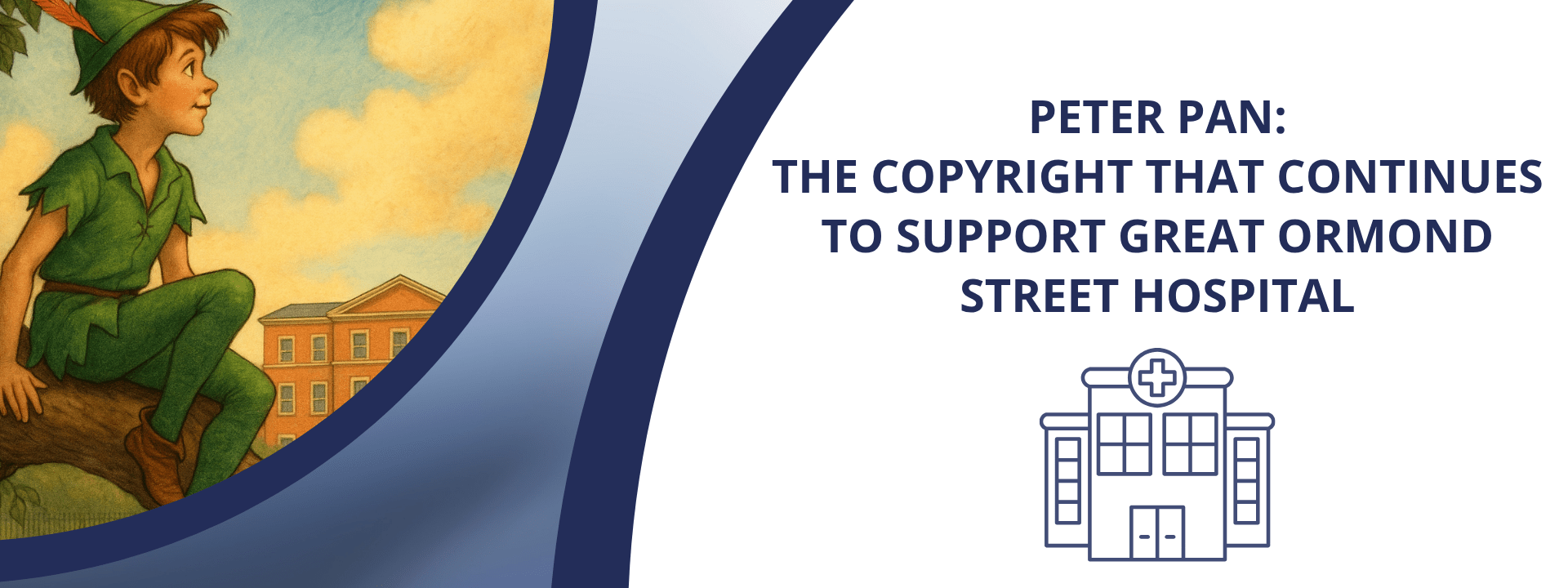Most literary works eventually enter the public domain, meaning that after a set period, anyone can use them freely without seeking permission or paying royalties. However, the case of Peter Pan by J.M. Barrie is an exceptional example in UK copyright law.
The Gift of Copyright
In 1929, author and playwright J.M. Barrie gifted the copyright in Peter Pan to Great Ormond Street Hospital for Children (GOSH) in London. This gift included the rights to royalties from performances and publications of the story. It was an unprecedented act of generosity intended to provide ongoing financial support for the hospital.
Barrie passed away in 1937. At that time, UK copyright law stated that copyright in literary works lasted for the life of the author plus 50 years. Therefore, the copyright in Peter Pan would have expired in 1987 under the law then in place.
A Unique Legal Exception
When the copyright was due to expire, the UK Parliament took an extraordinary step. Through Section 301 of the Copyright, Designs and Patents Act 1988, it granted Great Ormond Street Hospital a unique right. This provision gives the hospital a continuing right to royalties from any public performance, commercial publication, or broadcast of Peter Pan within the UK.
Importantly, this is not an extension of copyright in the traditional sense. The copyright itself has expired. Instead, this legal provision recognises GOSH’s special entitlement and allows the hospital to continue receiving royalties indefinitely. This right applies exclusively in the United Kingdom and does not extend to other countries.
International Position
Outside the UK, Peter Pan has entered the public domain in many jurisdictions. This means that in countries where the copyright term is life of the author plus 70 years, the work became free to use from 2008 onwards. However, the special UK provision ensures that any performance or use of the work in the UK must still acknowledge and support Great Ormond Street Hospital.
Lessons for IP Owners
The story of Peter Pan illustrates the potential for copyright to be used not only as a commercial asset but also as a tool for long-term social impact. It also highlights how Parliament can intervene in exceptional cases to preserve specific benefits, even after copyright has expired.
For rights holders, this case serves as a reminder of the importance of planning how intellectual property assets are managed and assigned, whether to family members, charities, or businesses. The legal structure surrounding IP can have long-lasting effects.
Do you have questions about copyright ownership, assignment, or licensing in the UK?
Robertson IP provides tailored legal support for creators, publishers, and organisations looking to manage and protect their intellectual property effectively.
Visit our contact us page to get a free consultation today:

